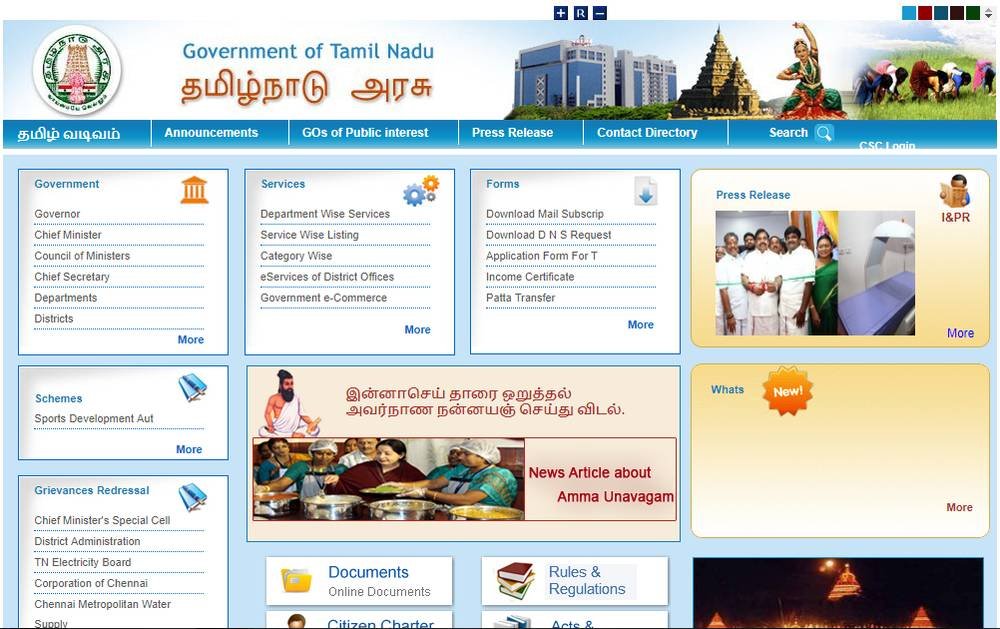The government issues the Tamil Nadu Community Certificate to people who identify as members of the Scheduled Castes (SC), Scheduled Tribes (ST), Most Backward Classes (MBC), and DE notified Tribes (DNT). To qualify for any of the government’s benefits, reservations, or safeguards, a person must present this certificate as proof of their caste or community.
The Community Certificate in Tamil Nadu is issued by the state’s Revenue Department. It is mandatory to apply for this certificate online to get benefits in the employment and education segment from the Government of Tamil Nadu.

Table of Contents
ToggleCommunity Certificate Tamilnadu
Community certificate is an important document issued by the Revenue Department to certify that a person belongs to a particular reserved community like Scheduled Caste, Scheduled Tribe and Other Backward Classes. The Community certificate issued by the concerned State Governments is also known as caste certificate. Community certificate is mandatory for obtaining benefits in education and employment sectors from the Government.
Eligibility
- The applicant should belong to any reserved category such as Scheduled Caste, Scheduled Tribe or Other Backward Classes
- The applicant should be an Indian citizen
- The applicant should be residing in Tamilnadu
- The applicant should have completed 3 years of age
Documents Required for Community Certificate in Tamil Nadu
- Passport size photograph
- Proof of address
- Self-declaration of the applicant
- Community certificate of father/ Community certificate of mother/ Community certificate of siblings
- DE notified Community Certificate (DNC)
Register in TN eSevai Portal and Generate CAN Number
In order to apply to apply for Community Certificate online in Tamil Nadu, you have to complete the following tasks:
- Register in the Tamil Nadu eSevai Portal
- Register for CAN for getting the access the application form
eSevai Registration
Given below are the steps to register in the eSevai portal:
- Firstly, visit the Tamil Nadu eSevai portal.
- Next, click on ‘Citizen Login’.
- For the new users, they need to click on the ‘New User’.
- Enter all the required details.
- You will receive an One Time Password (OTP) in your registered mobile number to register in the eSevai portal.
- Once you are registered to the portal, you have to log in to the website using your credentials.
- Next, choose ‘Revenue Department’.
- Select ‘REV-101 Community Certificate’.
- Next, click on ‘Proceed’.
CAN Registration
The following are the steps to do CAN registration:
- Firstly, click on the ‘Register CAN’ button in order to apply for CAN registration.
- Now, enter all the required details in the prescribed format.
- Click on the ‘Register’ to submit the form.
- You also have to generate and verify the OTP before submitting the form.
- Once the registration is done successfully, the CAN number will be generated.
Apply Online for Community Certificate in Tamil Nadu
- First, you have to enter the CAN Number and search for the records.
- The applicant who has a unique CAN Number, his or her record will be displayed in the search results.
- Select the record by choosing the option button.
- Now, click on ‘Proceed’.
- The details of the applicant such as permanent address, current address, and contact details will be displayed and these are non editable.
- You also have to mention the details of your family members.
- Mention the details of the community certificate form and click on ‘Submit’ button.
- Then, attach the documents in the prescribed file type and file size.
- Once the documents are uploaded, click on ‘Make Payment’.
- Once the payment is done, you will receive the acknowledgement receipt.
- Click on Print Receipt to download and print the receipt for future reference.
FAQs
How to get community certificate in TN?
To get a community certificate in TN, you need to apply at your local Tahsildar office or online through the Tamil Nadu eSevai porta
What are documents required for community certificate in Tamil Nadu?
The documents include proof of address, identity proof, ration card, aadhar card, and other supporting documents.